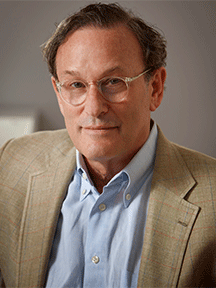By Julia Bianco
Jeffrey Alexander, cultural sociologist and professor at Yale University, gave two talks to students at the University of Buffalo on November 17 as part of the Phi Beta Kappa Visiting Scholar Program. His residency was sponsored by the university’s chapter of Phi Beta Kappa, Omicron of New York.
The first talk was titled “Social Crisis and Societalization: A Cultural Sociological Approach to the Financial Crisis, Church Pedophilia and Media Phone Hacking.” It was a part of the Department of Sociology’s Colloquium series.
In this talk, Alexander discussed why these three modern events, which were endemic for long periods of time, did not cause widespread crises. Rather, the issues were handled within institutions. However, when this “steady state” was disrupted by a certain event, the civil sphere starts to interfere, causing the institutions to resist reform.
“When intra-institutional strains become interpreted as challenges to civil discourse and interests, there is societalization,” Alexander explained. “Inter-sphere boundaries become tense and there is widespread anguish about social justice and the future of democratic society.”
The second talk, “Cultural Trauma, Social Solidarity and Moral Responsibility: Reactions to the Holocaust and other Modern Mass Murders,” examined how cultural traumas affect the public’s sense of social responsibility, and how that affects political action in different time periods.
“Cultural trauma occurs when members of the collectivity feel they have been subjected to a horrendous event that leaves indelible marks on their group consciousness, marking their memories forever and changing their future identity in fundamental and irrevocable ways,” Alexander explained. The lecture first presented cultural trauma theory, and then applied it to a number of different case studies.
Both lectures were free and open to the public. Alexander also met informally with undergraduates, graduate students, and faculty on November 18.
Alexander is the Lillian Chavenson Saden Professor of Sociology at Yale, and he is also the founder and co-director of the university’s Center for Cultural Sociology, which does research to illuminate the cultural texture of social life at both individual and collective levels. His research focuses on theory, culture and politics.
He has also held visiting appointments as the Pitt Professor of American History and Institutions at the University of Cambridge, a Visiting Fellow at Goldsmiths College at the University of London, a guest professorship at the University of Konstanz in Germany and at France’s L’Ecole des hautes études en science sociales.
Alexander is also the author, co-author or editor of eighteen books, including The Dark Side of Modernity, about how social theory can help to fix many of the problems associated with modernity, Performance Revolution in Egypt: An Essay in Cultural Power, outlining the narrative attached to the 2011 revolution in Egypt, particularly with regards to social media, and his most recent book, Obama Power, co-authored with Bernadette N. Jaworsky, which argues that President Barack Obama’s reelection in 2012 was due to cultural reconstruction.
Alexander also has a book titled The Crisis of Journalism Reconsidered: Cultural Power, which he edited with Elizabeth Butler Breeze and Maria Luengo, that will be released by the Cambridge University Press in 2015.
Alexander’s two-day residency was sponsored by UB’s chapter of Phi Beta Kappa (Omicron of New York) as well as the UB Humanities Institute, the UB Department of Sociology, the UB Institute of Jewish Thought and Heritage, the Honors College, and the Academies.
Visit the Phi Beta Kappa website to learn more about the Visiting Scholar Program!
Julia Bianco is a junior at Case Western Reserve University. She is a double major in cognitive science and political science, with a minor in English. Case Western is home to the Alpha of Ohio Chapter of Phi Beta Kappa.




